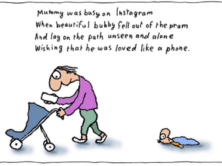Agnes Uwimana Nksui and Saidath Mukakibibi were sentenced to prison as a result of articles published in Rwandan newspaper Umurabyo.(Credit: CPJ,screenshot)
Reporters without Borders, Amnesty International and the Committee to Protect Journalists “slammed” a recent conviction and imprisonment given to two female Rwandan journalists, the AFP reported.
The two journalists, Agnes Uwimana Nksui and Saidath Mukakibibi, were arrested in July 2010. Nkusi was the editor of a monthly Rwandan newspaper Umurabyo, and Mukakibibi was a reporter for Umurabyo.
Nkusi “was convicted of defamation, causing ethnic divisions and minimising Rwanda’s 1994 genocide” and Mukakibibi of “inciting breach of the peace.” The prosecutor in the case originally called for sentences of 33 and 12 years for the women respectively, but the journalists were sentenced to roughly half that: Nkusi was sentenced to 17 years and Mukakibibi 7 years.
Umurabyo “was prohibited from publishing for six months last year” after the two journalists were arrested, UPI reported.
CPJ explained that the 2010 articles that led to the journalists’ arrests and imprisonment “criticized government officials and challenged the official interpretation of the 1994 genocide, according to local journalists.”
Further, “some of the columns in contention claimed there were growing divisions within the army and that Hutus victims of the 1994 Rwandan genocide deserve justice. One of the columns was accompanied by a photo of President Paul Kagame with a Nazi swastika superimposed in the background. The arrests took place one month ahead of the 2010 presidential elections.”
Amnesty International commented on the verdict, stating:
“Today’s verdict marks yet another blow to freedom of expression and opinion in Rwanda. The government has not adequately demonstrated how the articles could be construed as a threat to national security or were intended, or likely, to incite violence. Journalists must be free to criticize public officials and policies without fear of criminal sanctions for defamation.”
Likewise, Committee to Protect Journalists called for the convictions to be reversed. CPJ stated on its website that the convictions “will have a chilling effect on the Rwandan press” and further criticized “Rwanda’s vague and sweeping laws against ‘genocide ideology’ and ‘divisionism.'”
“We condemn the continued use by Rwandan authorities of vaguely worded laws against genocide denial and divisionism to intimidate the press from critically covering the aftermath of the 1994 genocide,” CPJ Africa Advocacy Coordinator Mohamed Keita is quoted as saying.
Reporters without Borders labeled its article on the imprisonment “Insane Judicial System” and spared no words in criticizing the system for its convictions, bluntly stating: “Reporters Without Borders is appalled by the pigheadedness and cruelty of the Rwandan judicial system.”
Nkusi’s lawyer, who isn’t identified by name, commented to Reporters without Borders about the case, saying:
“The high court went too far. It took no account of our requests. Our view is that the court has no tangible evidence of their criminal guilt. This case should be tried as a disciplinary matter by the Media High Council. These two journalists should be released. Furthermore, the sentences they have been given are very severe.”
Reporters without Borders ranked Rwanda 169 of 178 countries in its 2010 press freedom index. According to Reporters without Borders, that “was Africa’s third worst ranking. Only Eritrea and Sudan were below it in the index. President Paul Kagame has been on the Reporters Without Borders list of ‘Predators of Press Freedom’ for several years ”
iMediaEthics is writing to Amnesty International, Committee to Protect Journalists and Reporters without Borders asking what action they are taking besides bringing attention to the imprisonment. We will update with any response.
UPDATE: 2/16/2011 7:53 PM EST: Mohamed Keita, Africa Advocacy Coordinator for the Committee to Protect Journalists, responded to iMediaEthics’ e-mail inquiry.
Keita wrote: “Besides publicizing the matter, we are working with partners to assist the journalists with their legal defense. We are also continually lobbying the Rwandan government to amend vaguely-worded laws on divisionism and genocide ideology to mitigate their abuse to gag legitimate critical commentary.”






